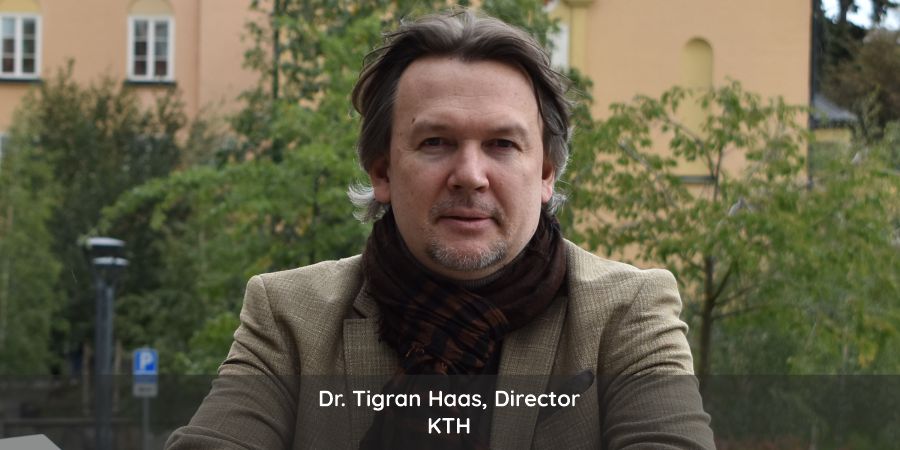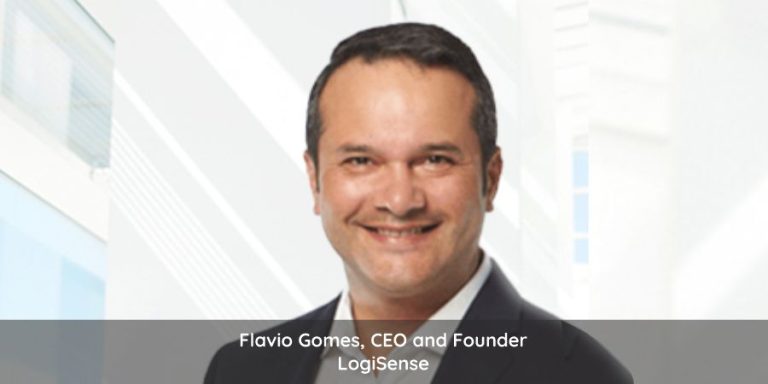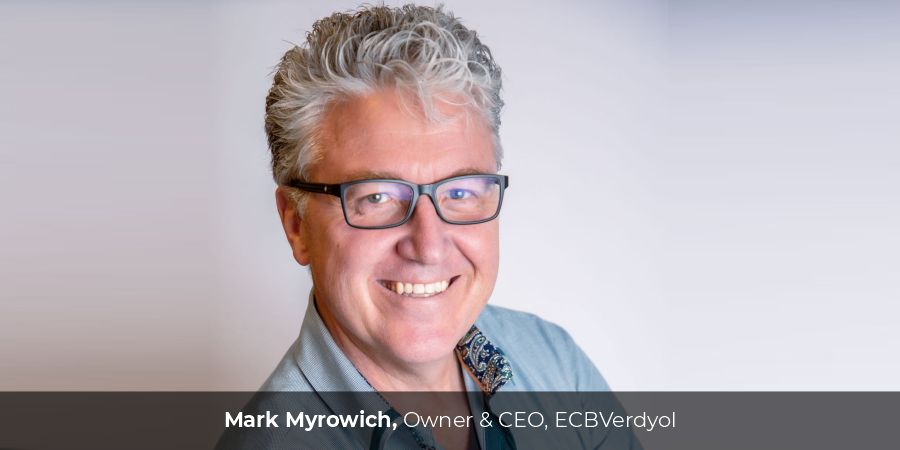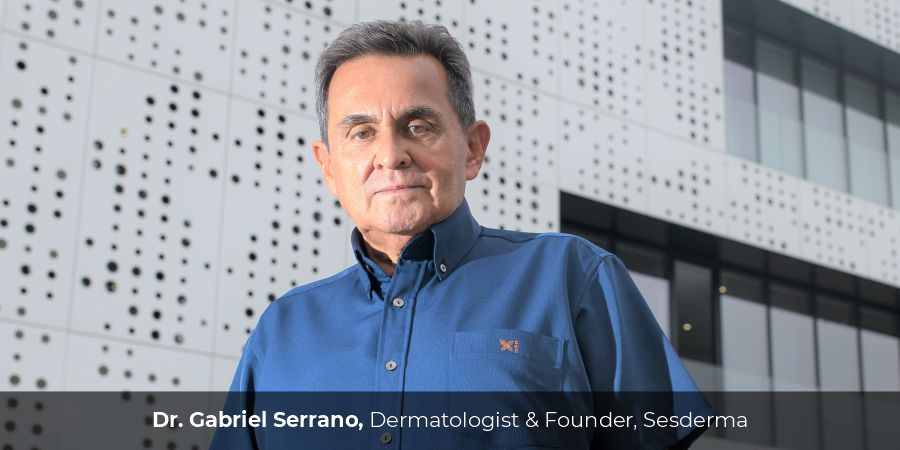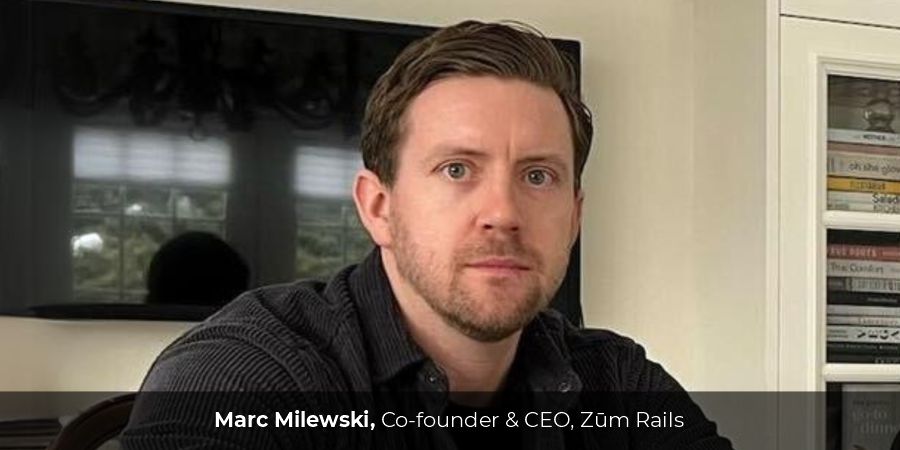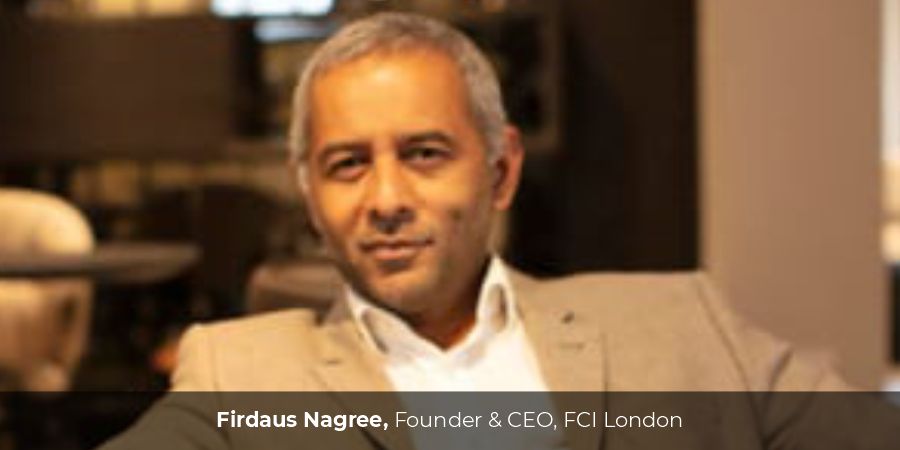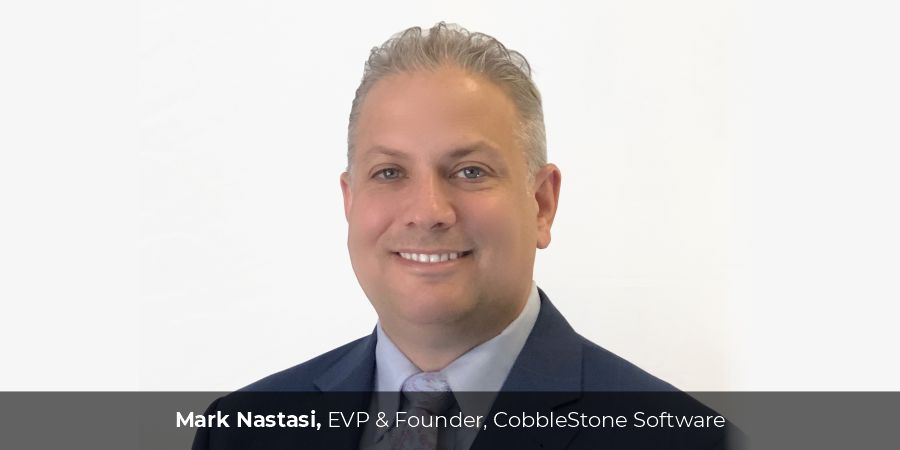In a colloquy with Dr. Tigran to get to the bottom of the company
Why Did CFP Originate?
The purpose of the Centre for the Future of Places (CFP) (KTH campus) is to use the focus on public space to merge the knowledge from different urban development silos (disciplines) and to create links among the experts in them in order to create a holistic understanding of the city. The ambition is to enhance an already ongoing paradigm shift where the focus in urbanism studies (in disciplines of urban planning and urban design) is shifting from objects to places.
It came about as an amalgamation of Future of Places Conferences, Urban Form and Human Behavior Research Lab, and International Network in Urbanism.
What is Your Company’s Focus? How Have You Been Successful in Achieving Your Goals?
The Centre for the Future of Places will investigate the challenges facing our regions, metropolitan cities, towns, and neighborhoods in the achievement of more sustainable, resilient, livable, just, and inclusive urbanism.
- The Centre will focus upon the urgent topic of public space, its role as an essential urban framework, its degradation under current global urbanization processes and the reforms that will be needed to achieve the public space goals of a “New Urban Agenda” as defined in 2016 by United Nations member states.
- More broadly, the Centre will investigate topics relating to the contemporary and future urban condition, development, planning, design and the urban form and placemaking processes of the city. It will take as its principal professional concern the evolving role of urban planning and design within broader interdisciplinary fields, and their impacts upon human environments and social life.
The Centre will provide a link between the research resources at the KTH School of Architecture and the Built Environment and the wider professional practice community. Public communication and dialogue will occur through research, education, social media, symposia, roundtables, colloquiums, debates, conferences, exhibitions, and publications.
Finally, the Centre for the Future of Places will ensure that its output complies with the most stringent standards of academic scholarship as well as ensuring practical relevance and human benefit. The desire of the Centre is to raise professional and public appreciation towards urbanism and its impact on the city and the responsibility for creating a better life for all citizens.
How Are You Distinct From Your Competitors?
The Centre for the Future of Places (CFP) is also involved in dynamic outreach activities with other universities and relevant organizations. Through these activities, we form interesting projects through which to rethink and improve the conventions of planning and design theory and practice. This is done with the goal of making a tangible difference in the lives of human beings through the physical environment of our cities.
Reflecting the interdisciplinary nature of our work, more than 220 presentations, talks, and interviews have been given over the past one and a half years by CFP researchers at a range of institutions and academic environments. Through all our research projects in the four thematic fields – from sustainable urbanism, urban form, and human behavior, to urban transformations, housing and urban spaces (all focusing on public spaces) CFP’s staff have established strong relationships with other international research nodes and centres of learning and research within the School.
The Centre has the largest international cross-disciplinary network in the world of academia, where the disciplines included are architecture, human geography, Urban Planning, City Planning, and Urban Design, Environmental Planning, Environmental Psychology, Urban Social Geography, Urban Sociology. Also, the spread of research fields and the moto of where all ideas have equal standing differentiates us from the others – the focus on public space in all four fields of our research, sustainable urbanism, housing studies, and urban spaces, emergent urban transformations, and urban form and human behavior.
Who Are Your Competitors?
Institute of Urban and Regional Development (IURD) – The University of California at Berkeley Centre for Urban Studies (CUS) – The University of Amsterdam
Interdisciplinary Centre for Urban Culture and Public Space (SKuOR) – TU Vienna
Laboratory Of Critical Urbanism (LCU) – European Humanities University
Center for Metropolitan Studies (CMS) – Technische Universität Berlin
The Phoenix Urban Research Lab (PURL) – Arizona State University
ETH CASE – ETH Wohnforum, Swiss Federal Institute of Technology
Global Cities Institute (GCI) – University of Toronto
Urban Design Lab (UDL) – Earth Institute | Columbia University
Global Urban Research Unit (GURU) – Newcastle University Center for Architecture, Urbanism and Infrastructure (CAUI) – Princeton University
Future Cities Laboratory (FCL) – ETH Zurich, Swiss Federal Institute of Technology
What Services Do You Provide?
World Class Conferences, Symposiums, Talks, Seminars, Expert Advice, Education, Books, Research Reports, Consulting on best-case projects and others.
How Was CFP’s Progress From Start Till Now?
As a result, CFP from 2016-2019 has experienced the dynamic synergy that results from the free flow of ideas and contributions of people from all backgrounds. We are also firmly committed to attaining and sustaining the highest level of quality in our research and associated programs and projects, as well as a major push for internationalization on all levels. We put all of our support behind the work of our postgraduate students so that they have the broadest freedom to express their passion fully while experimenting with innovative ideas. With its holistic and interdisciplinary approach and project-based environments, CFP allows engaged groups of individuals to do their best work.
Since its initiation in September 2016, CFP’s staff and researchers have contributed to more than 150 new books, academic publications, book reviews, and research reports. We have pioneered a plethora of new systemic and clustered “Academic Conversations” – The Centre for the Future of Places Event Dictionary. The first-ever female academic series has been established with 20 international scholars coming with the total number of events numbering over 200.
Who Are Some of Your Biggest Clients? In Which Vertical Do You See The Most Traction In?
They are more partners than clients but in terms of Expertise the center has been giving expert advice to UN-Habitat, Abu Dhabi Urban Planning Council, Aseer Regional Development Authority (ASDA), City authorities in Vietnam, South Africa, Venezuela, and other places as well as Universities. The strongest partners are the University of Chicago, Massachusetts Institute of Technology, Harvard University, TU Vienna, ETH in Zurich, UCL Bartlett London, and organizations such as Project for Public Spaces, PPS, Gehl Architects, and others.
Where Do You Envision Your Company In The Coming Years?
After the five-year sequel of the Centre, we will see what the future has installed for us, that is where the next focus will lie in the coming five years, either continuing in the path we have set or turning the ship into another, slightly less (un)charted destination. One thing is sure, that in the next two years the focus will be on the critical issue of rising smart and new experimental cities and the issue of autonomous mobility but still having the first 3-year theme of cities for all and who owns the city in the backdrop. The main issue is that cities are getting more complex and the challenges are rising on a daily basis with multiple converging crises that seek answers for new theories, tools, and approaches.
The Centre will try to answer these calls as it goes into the next period. As we look towards the near future, over the next 12-month period we will develop a new biennial research theme that will focus on Livable, Viable, and Intelligent Smart Cities and Public Realm Futures. This will further expand our research program within the four thematic groups/tiers i.e. continue or complete all projects under our four core research strands but especially strengthen the international ties and upcoming work with UCL Bartlett in London and LCAU at MIT in Boston.
We continue to develop the cooperation with UN-Habitat and our other university partners such as TU Wien and ETH Zürich. Strengthening the ties between research and practice by supporting researchers to cooperate and to practically implement their research results is a central aspect of what we need to do in the coming two years.
What Clients Say About Us
Professor Saskia Sassen, University of Columbia: “The center is a marvelous effort of how to bring the leading people and ideas together in urban studies”
Professor Edward Glaeser, Harvard University: “Knowledge is more important than space, but the Centre has shown that both matter, wonderful endeavor”
The Man Who Made it Possible
Dr. Tigran Haas, Director, Associate Professor of Urban Planning + Urban Design, Background and Degrees in Architecture, Urban Design, Environmental Science, and Regional Planning and Development. Post-Doc Fellowships at MIT – Massachusetts Institute of Technology, Boston, UC Berkeley, and the University of Michigan, Ann Arbor.
He has been a guest professor at the Zagreb School of Economics and Management (ZSEM). He has been the Former Director and Chair of Civitas Athenaeum Laboratory (CAL) and the co-founder of the first-ever Scandinavian Masters in Urban Planning & Design as well as the founder of the first-ever Scandinavian International masters in Urbanism Studies.
Quotes
“The task of the Centre is to take a holistic approach in defining, classifying and establishing the public space as an independent academic research field.”
“We envision a networked community of leaders actively working across sectors, frontiers, and disciplines to build a more just sustainable and prosperous world.”



